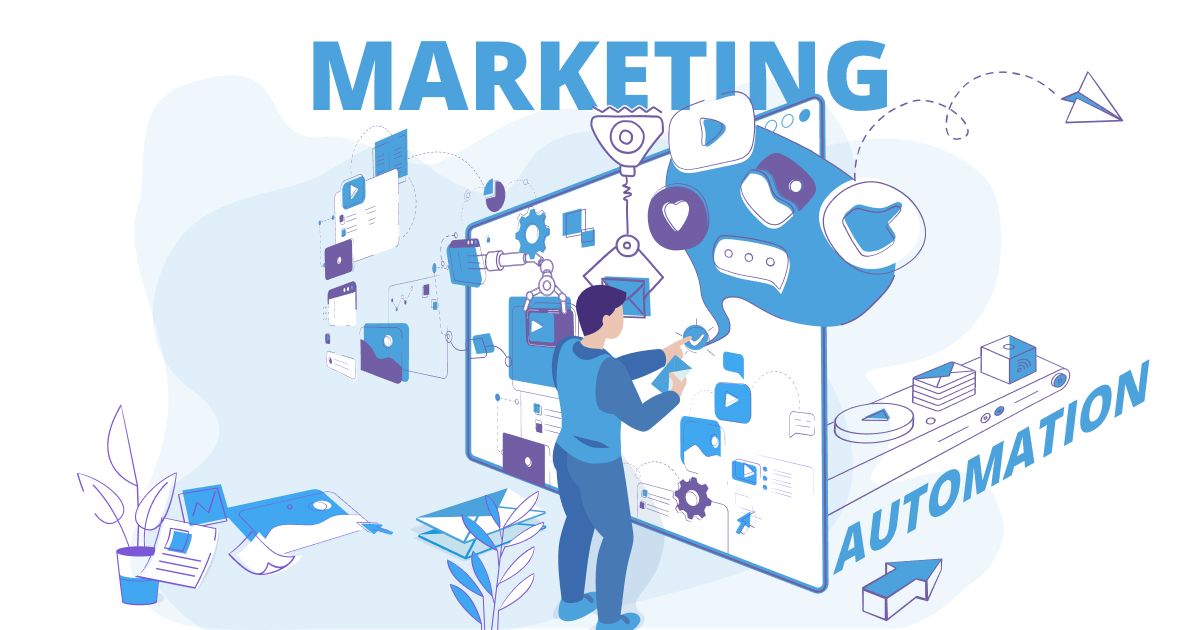Wondering how you can streamline your business processes and boost sales simultaneously? Well, the pot of gold at the end of your rainbow might just be marketing automation! It’s an innovative approach that combines technology with marketing strategies to save time, reduce manual effort, and most importantly, to increase sales. Stick around to find out how you can tap into this to unleash your business potential.
In essence, marketing automation is like having a super-efficient employee on your team, one who doesn’t take breaks or ask for overtime pay. It systematically handles tasks such as lead nurturing, customer segmentation, and campaign management. What’s exciting is that you can tailor it to your specific needs, ensuring a personalized experience for your customers which can result in significant sales growth.
Now don’t think that this means you’re completely hands-off. It’s a tool to enhance your performance, not replace you. By automating routine tasks, you’re left with more time to devise creative marketing strategies or focus on other revenue-generating activities. It’s about making processes smoother and more efficient, freeing you up to use your skills where they’re most needed.
By now, you should be thinking about how you can integrate marketing automation in your business. It’s more than just convenience- it’s a game changer for increasing your turnover, which is something any business would appreciate. So, what’s stopping you? Dive into this new era of technology-driven marketing and watch as your sales begin to soar!
Understanding Marketing Automation
What is Marketing Automation
Ever wondered how your favorite e-commerce site knows exactly what kind of emails to send you? Or how they know when to send you reminders when you’ve left products in your cart?
Welcome to the world of marketing automation! Simply put, marketing automation is applying software to automate repetitive marketing activities such as emails, social media posting, or ad campaigns. Basically, it allows you to put routine tasks on autopilot, freeing up your time and energy for more strategic aspects of your business.
Why Businesses Need Marketing Automation
Small and large businesses alike need marketing automation because it saves time, optimizes manpower and resources, and generally increases efficiency. Plus, automated systems provide objectivity. They analyze customer behavior data and, based on pre-defined conditions and triggers, they send relevant messages at the most opportune moments. Essentially, marketing automation personalizes the customer experience, leading to increased engagement, loyalty and, ultimately, sales.
The Evolution of Marketing Automation
It’s a mistake to think that marketing automation is a new concept. The need to streamline and automate has always been there, sparking continuous evolution and growth in this field. Today, marketing automation combines cutting-edge technology with sophisticated analytics, creating a powerful tool that, when used wisely, can skyrocket a business’s growth and profitability.
Unveiling the Power of Marketing Automation
Benefits of Marketing Automation
Marketing automation means efficiency and high-impact results. It enables businesses to nurture leads with highly personalized, useful content leading the potential customer down the buying process. From sending timely customized emails, responding instantly to customer queries, to managing your social media platforms, marketing automation helps you do more with less.
Marketing Automation for Small and Large Businesses
Whether you’re a new start-up or a well-established brand, marketing automation can fits all types of businesses. For small businesses with limited manpower, it helps in managing marketing tasks efficiently. Large businesses, on the other hand, can take advantage of marketing automation to effectively manage and analyse customer data on a large scale, leading to detailed segmentation, personalized engagement, and sharp targeted marketing efforts.
The Role of AI and Machine learning in Marketing Automation
Advanced technology like Artificial Intelligence (AI) and Machine Learning (ML) have taken marketing automation to unprecedented heights. From predicting customer behavior and personalizing customer communication, to optimizing marketing campaigns, these technologies make marketing automation smarter and more efficient.

This image is property of martechseries.com.
Different Types of Marketing Automation
Email Marketing Automation
From welcome emails, reminders, to personalized recommendations, email marketing automation allows you to send the right message at the right time without lifting a finger.
Social Media Marketing Automation
automating your social media marketing allows you to post updates, interact with your audience, and monitor your social media presence, even while you are asleep!
Content Marketing Automation
From blogging, video creation, to podcasting, content marketing automation helps you create, schedule, and publish content seamlessly across various platforms.
Ad Campaign Marketing Automation
This enables you to launch, manage, track, and optimize online ads automatically. It eliminates tedious manual tasks, so you can focus on strategy and creativity.
Setting up a Marketing Automation Funnel
Steps to Create a Successful Automation Funnel
The first step in creating a successful marketing automation funnel is to understand your customer journey. Once done, design a marketing automation strategy that caters to each stage of this journey. Implement the strategy using a reliable marketing automation software, then monitor and refine your funnel as necessary.
Troubleshooting Common Issues in Automation Funnels
Some common issues in automation funnels include lack of personalization, irrelevant content, and poor timing, all of which can be overcome through thoughtful strategy, continuous monitoring, and refinement.

This image is property of makewebbetter.com.
Maximizing Sales with Marketing Automation
Strategies for Boosting Sales Using Marketing Automation
From segmenting your customers and personalizing your content, to crafting irresistible offers and automating your follow-ups, there are several strategies you can use to boost your sales using marketing automation.
Case Studies of Successful Sales Improvement Through Marketing Automation
Case Studies offer concrete examples of businesses that have successfully boosted their sales with marketing automation. They show that when done right, marketing automation can yield unbelievable returns on investment.
Marketing Automation Tools and Software
Understanding Different Marketing Automation Tools
There’s a wide array of marketing automation tools available, each catering to different aspects like email automation, social media automation, content marketing automation, and so on.
How to Choose the Best Marketing Automation Software for Your Business
Choosing the right software largely depends on your specific business needs. It’s crucial to identify the tasks you seek to automate and find a software that delivers those functions effectively.
This image is property of miro.medium.com.
Effective Use of Analytics in Marketing Automation
Importance of Analytics in Marketing Automation
Analytics reveal the efficiency of your marketing automation strategy, helping you make necessary adjustments for better results.
How to Interpret and Apply Marketing Automation Analytics
Interpreting and applying marketing analytics involves understanding key performance metrics such as open rates, click-through rates, conversion rates, etc., and responding to these metrics through strategy adjustment.
Challenges and Solutions in Marketing Automation
Identifying Common Problems in Marketing Automation
Some common problems with marketing automation include a lack of strategy, poor content creation, or selecting the wrong automation software.
Practical Solutions to Overcome Marketing Automation Challenges
The best way to overcome these challenges is implementing a well-thought-out marketing automation strategy, improving the quality and relevance of your content, and choosing an automation software that aligns with your business needs.

This image is property of altcraft.com.
Future Trends in Marketing Automation
Emerging Trends and Their Impact on Marketing Automation
Emerging trends like AI, ML, big data, and IoT are set to redefine the dynamics of marketing automation, promising exciting possibilities like hyper-personalization and predictive analytics.
How to Prepare and Adapt for the Future of Marketing Automation
Staying updated with latest software, learning about new technology, and adopting flexible business practices are some ways to stay prepared for the future of marketing automation.
Conclusion
Summarizing Key Benefits and Challenges of Marketing Automation
Despite the challenges, the benefits of implementing marketing automation in your business strategy are compelling. It’s an effective way to save time, increase engagement, personalize customer interaction, and, ultimately, boost sales.
Final Words on Harnessing the Full Potential of Marketing Automation
Marketing Automation is not just a trend, but a strategic necessity in today’s fast-paced digital world. It’s a powerful asset when used wisely, and with the right approach and tools, you can truly unleash the potential of marketing automation to propel your business forward.
